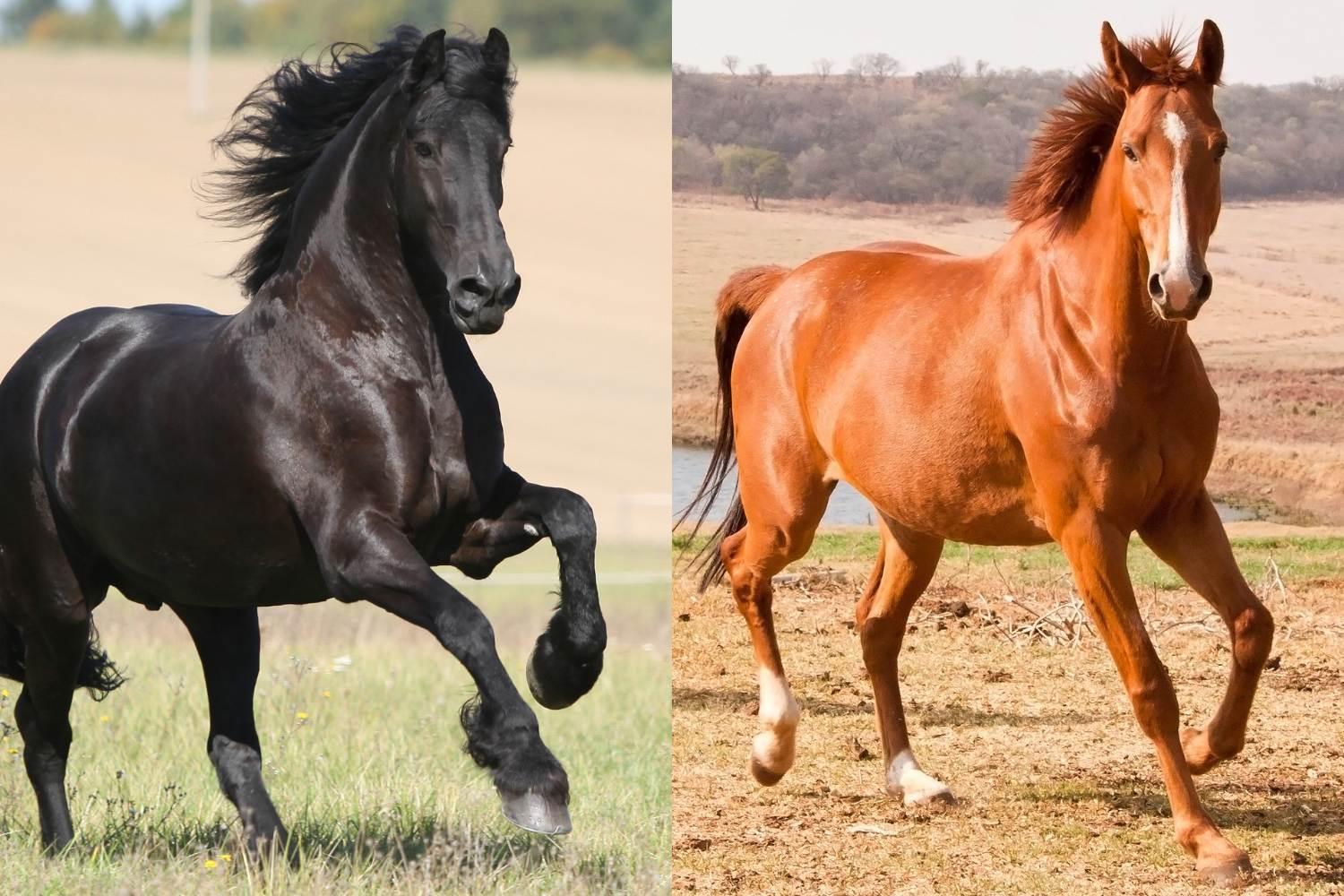"Extension" Black / Red Factor (E)
Gene or Region: MC1R
Reference Variant: C (E)
Mutant Variant: T (e)
Affected Breeds: Many
Research Confidence: High - Findings reproduced in multiple studies and strong association in studied population
Explanation of Results: E/E = Homozygous Black E/e = Heterozygous Black e/e = Red
General Description of Extension or Black/Red Factor
The black/red factor test (also known as “extension”) determines the underlying base color of a horse in the absence of any modifiers (such as agouti). A horse with the dominant “black” allele (E) is able to produce both black and red pigments. The recessive “red” allele (e) prevents the production of black pigment, resulting in a chestnut or sorrel base. Since black is completely dominant over red, heterozygous horses (E/e) have the appearance of the dominant allele (a black base color).
The agouti modifier is an example of the genetic concept of “epistasis” – that the effect of one gene is dependent on the effect of an independent gene. While extension determines whether a horse can produce black pigment, agouti controls where the black pigment will be located. In order for a horse to appear uniformly black, it must have at least one dominant allele at extension (E/E or E/e) and be homozygous recessive at agouti (a/a).
Gene Information
MC1R is a membrane bound receptor that regulates the production of pigmentation. Mutations in this gene have been well documented to result in a variety of coat colors in many species. In the horse, two alleles have been documented. This SNP is a single base change that alters an amino acid, likely changing the function of the encoded protein. A more rare MC1R allele (ea) causes a second amino acid substitution and interferes with the standard black/red factor genetic test, resulting in chestnut horses that genotype as black.
References
Marklund L et al., “A missense mutation in the gene for melanocyte-stimulating hormone receptor (MC1R) is associated with the chestnut coat color in horses.” (1996) Mamm Genome. 7: 895-9.
Wagner HJ and Reissmann M, “New polymorphism detected in the horse MC1R gene.” (2000) Anim Genet. 31: 289-90.
Rieder S et al., “Mutations in the agouti (ASIP), the extension (MC1R), and the brown (TYRP1) loci and their association to coat color phenotypes in horses (Equus caballus).” (2001) Mamm Genome. 12: 450-5.
More Horse Color Genetics
Dun / Non-Dun
Dun (D) is a dilution that affects both black and red pigment types. Two non-dun (nd1 & nd2) variants have been discovered, with nd1 being associated with primitive markings (such as a characteristic dorsal stripe) in non-dilute horses, and nd2 showing neither dilution nor primitive markings.
